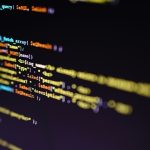As the world becomes increasingly cyber-physical, the role of microcontrollers (μC) in various applications has surged. Accordingly, mastering microcontroller programming (μCP) has grown critical for electrical and computer engineering students. “Computer Applications in Engineering Education” explores these dynamics in its article, focusing on the current state of μCP education in Portugal and the potential role of natural language processing (NLP) tools. Notably, the research examines how NLP tools like ChatGPT can support students, offering new insights and highlighting promising directions for future educational methodologies.
Current Status of μCP Education in Portugal
The article delves into the landscape of μCP education across seven Portuguese engineering schools, emphasizing the widespread use of AVR 8-bit microcontrollers and a preference for project-based learning approaches. This educational methodology aims to provide hands-on experience, fostering a deeper understanding of both theoretical and practical aspects of μCP. Despite these efforts, the inherent challenges of μCP, such as mastering low-level programming languages and complex algorithmic strategies, remain significant hurdles for students.
The complexity is further exacerbated when high-level languages are employed, rendering μCP time-consuming and intricate. Hence, there’s growing interest in leveraging NLP tools to alleviate some of these challenges. The article evaluates the viability of integrating NLP tools into μCP, focusing on their ability to generate code automatically and explain complex concepts, thus shifting students’ focus towards software design and real-world applications rather than low-level coding intricacies.
Impact and Application of NLP Tools
NLP tools, including ChatGPT, show promise as valuable companions for μCP students. The research includes hands-on tests and literature reviews to analyze the advantages and potential drawbacks of these tools in educational settings. By assisting with automatic code generation and clarifying difficult concepts, NLP tools could significantly enhance the learning experience, making the process more efficient and less daunting for students.
An in-depth analysis of ChatGPT’s role in a specific μCP course at the Instituto Superior de Engenharia do Porto (ISEP) was conducted. The findings largely confirmed the anticipated benefits, though some unexpected outcomes were also noted. These observations underscore the need for further exploration to fully understand the implications of integrating NLP tools in μCP education, ensuring they complement the learning process effectively.
Comparing this to previous reports on μCP education, the current research offers a more optimistic outlook regarding the potential of NLP tools. Earlier studies mainly focused on the traditional challenges associated with μCP, such as the steep learning curve and the necessity for extensive practice. However, the introduction of NLP tools represents a shift towards leveraging technology to ease these challenges.
Moreover, past discussions on educational methodologies often highlighted the need for innovative teaching aids to enhance student engagement and comprehension. The current analysis of NLP tools aligns with these discussions, proposing a practical solution that could transform μCP education by making it more accessible and less taxing for students.
Integrating NLP tools into μCP courses could potentially revolutionize the learning environment for engineering students. By automating routine coding tasks and providing comprehensive explanations, these tools can help students concentrate on higher-level design concepts and application-oriented tasks. However, it is crucial to continue researching their long-term impact, ensuring that they effectively augment traditional teaching methods rather than replace essential foundational learning. This approach could pave the way for more efficient and engaging educational experiences, ultimately producing more proficient and confident engineers.










